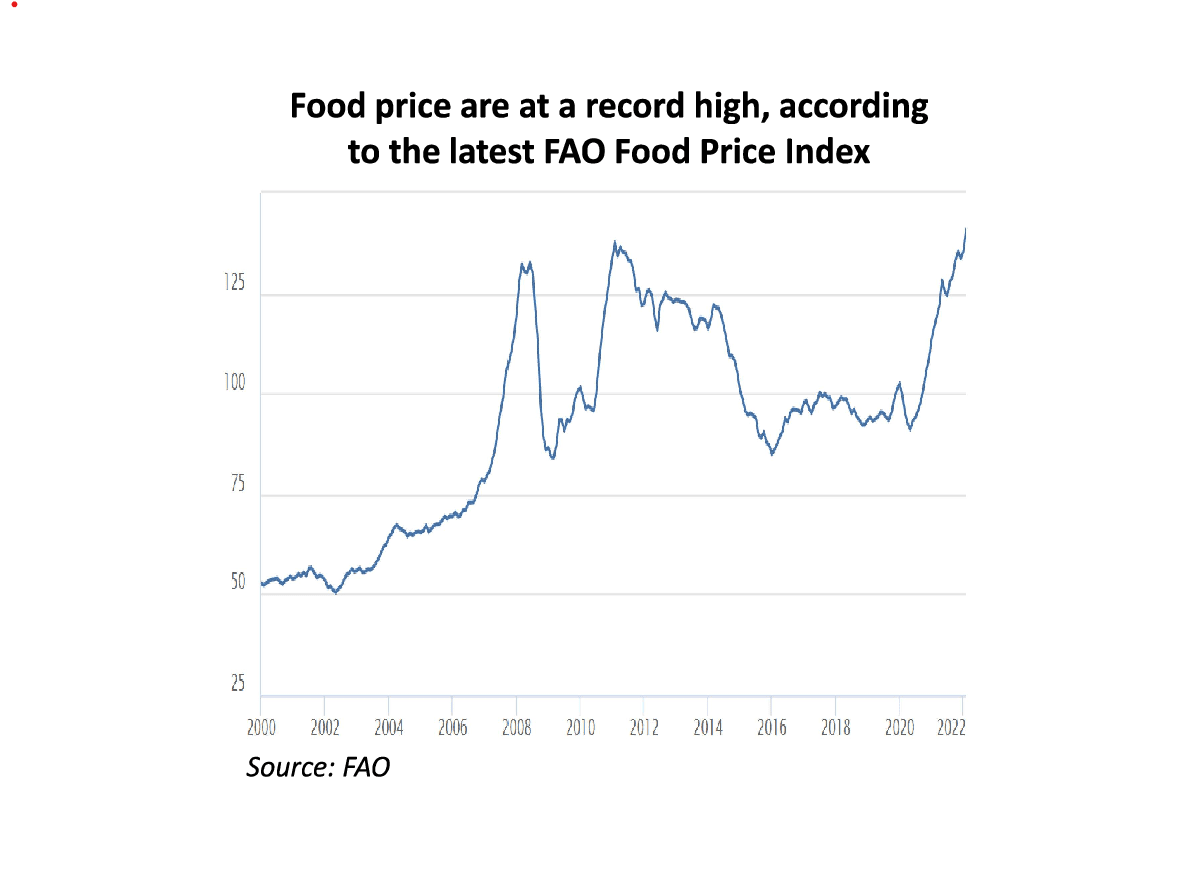ECOSOC at 80: Renewing Multilateralism in an Age of Global Uncertainty
On 23 January, the United Nations Economic and Social Council (ECOSOC) convened a commemorative session…
My heart goes out to all the people caught up in conflict and to people around the world facing uncertainty.
The Russia-Ukraine conflict has underscored the urgent need to place agricultural productivity and trade on the global agenda. Supply chain and logistical disruptions, restrictions on exports, and shortages in inputs supply pose a serious threat to food security. Already, international food prices are volatile, having reached an all-time high in February 2022 (FAO). The uncertainty of the intensity and duration of the conflict will worsen the situation further as the disruptions and restrictions persist and will affect the entire globe.

Analysis by FAO Director-General QU Dongyu, New Scenarios on Global Food Security based on Russia-Ukraine Conflict, makes a strong case for the need to include food security in global security discussions. Uncertainty may continue to prevail and low stocks combined with the conflict remind us that agricultural productivity, while off the global agenda for some time is in fact incredibly important. Food production and trade must be sustained even during such crises. It is critical for countries to avoid creating restrictions on the movement of agricultural products and food. The already volatile international food prices is very worrying. Without urgent intervention and action, the situation will become worse and plunge low-income countries further into food insecurity and poverty as the prices of commodities become out of reach for most of them. Many of them are highly dependent on Russia and the Ukraine for wheat.
An important part of the agricultural market governance is the Agriculture Market Information System – AMIS – whose secretariat is hosted at FAO. Governments must continue to work together to strengthen and promote market transparency through such initiatives as AMIS.
We need to get farmers back to the fields and for peace to prevail.